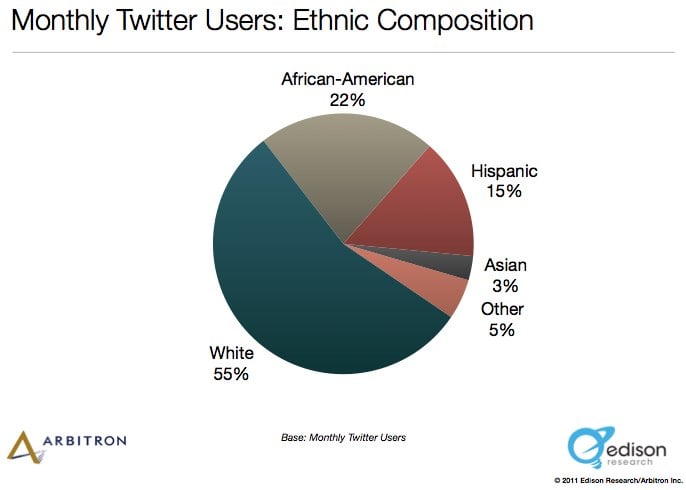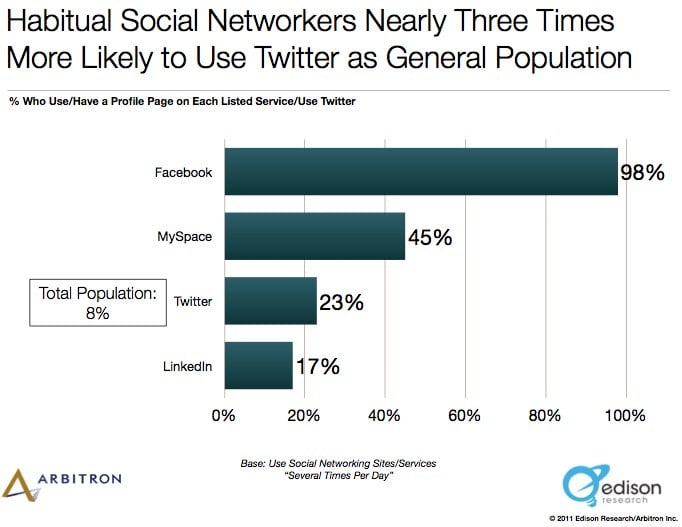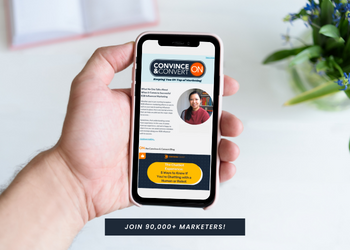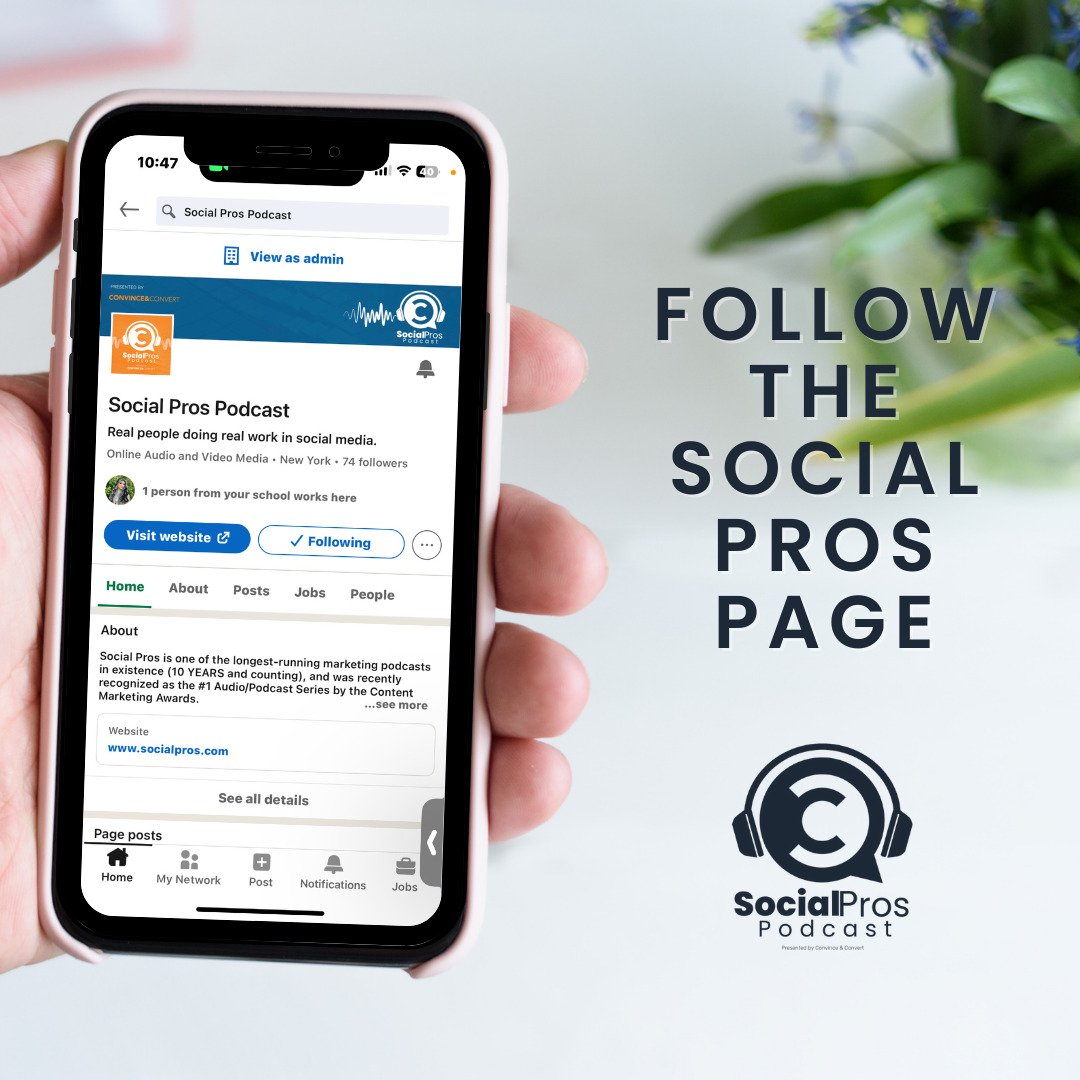
Do you have your copy of Youtility: Why Smart Marketing is About Help not Hype? Visit Amazon or Barnes & Noble to get your copy now!
Social media is growing up fast. No longer a niche plaything of the digerati, social media is firmly entrenched as a societal game changer of historical importance. For many, social media and social networking are so ubiquitous and pervasive that we presume we have it figured out, that we have a finger firmly on the pulse. But we don’t. Data about how social media really works, who uses it and how, continues to surprise.
This point was driven home in The Social Habit II, a new report from Edison Research and Arbitron that follows up on their landmark study in 2010 (and their 19th study about the Internet overall).
My friend and the architect of the study, Tom Webster, was kind enough to give me a preview of the report (I also very much recommend Tom’s blog BrandSavant), and here are my personal highlights – the pages that made me say “hmmmm”.
I encourage you to peruse the entire report, which you can access for free in a day or so. Tweet me or Tom (@webby2001) to get the URL. It’s a 50+ page orgy of data based on 2,020 telephone interviews of Americans ages 12 and up, conducted in February, 2011.
9 Surprising New Facts About Social Media in America
1. More People Are Active on Social Networks Than Are Not
52% of Americans have a profile on Facebook, Linkedin, MySpace or elsewhere. This may be a tipping point for social adoption overall.
2. Twitter is a Tiny Sliver
As discussed in “Is Twitter Massively Overrated” a few weeks ago, Twitter’s cultural impact is not driven by the size of its user base, but by its real-time nature, and the types of people who use it. Twitter is used by just 8% of Americans (compared to 51% for Facebook).
 3. Twitter is Incredibly Diverse
3. Twitter is Incredibly Diverse
Just 55% of Twitter uses are White, followed by 22% African-American, 15% Hispanic, and 3% Asian. This is of course substantially more diverse than the population overall, and markedly more diverse than Facebook. I have read that African-Americans use the mobile Web at a much higher rate than the population at-large, and given the propensity of Twitter users to participate via mobile device, I wonder if that’s part of the correlation? Or perhaps I’m confusing cause and effect? Either way, I found it to be a very interesting statistic.
4. The Emergence of the Super Socials
One-third of Americans with a profile on a social network, use those sites several times per day or more. This group of “super socials” (my label, not Edison’s) numbers 46 million, and increase of almost 20% in one year.
 5. Super Socials Love Twitter
5. Super Socials Love Twitter
Partially an explanation of Twitter’s popularity and role in the culture despite it’s relatively small user base, 23% of the “super socials” use Twitter, which is almost triple the rate of Americans overall. (98% of super socials use Facebook, and 45% use MySpace)
6. Super Socials use and Worship their Smartphones
56% of the super socials use smartphones, compared to 31% of the U.S. population surveyed; and when presented the choice of abandoning their smartphone or television, 64% of super socials would choose to keep the phone.
7. Super Socials Interact with Brands
Among habitual social networkers, 43% follow companies on social networks, compared to just 25% of all social network users.
 8. Brand Interactions Occur Predominately on Facebook
8. Brand Interactions Occur Predominately on Facebook
Among the 25% of respondents that have followed a company in social media, 80% have done so via Facebook. Just 6% have done so on Twitter. This raises an interesting question about companies’ efforts to attract followers on Twitter vs. similar efforts to acquire “likes” on Facebook. Based on this data, it would seem that consumers are perhaps most interested in that type of interaction via Facebook, reserving Twitter for customer service issues (as other research has suggested, most notably from ExactTarget – a client).
9. Facebook is Where Consumers are Influenced about Buying Decisions
72% of respondents said that no social network has influenced their purchase of products and services. Personally, I doubt the veracity of that statistic, as people routinely overlook the subtle ways in which their friends and family (to whom they are probably connected on Facebook and elsewhere) influence their purchases. However, among the survey participants who acknowledged social media’s role in this regard, they cited Facebook overwhelmingly as the source of that influence.
Which of these strikes you as the most interesting? What do you take away from these findings?

